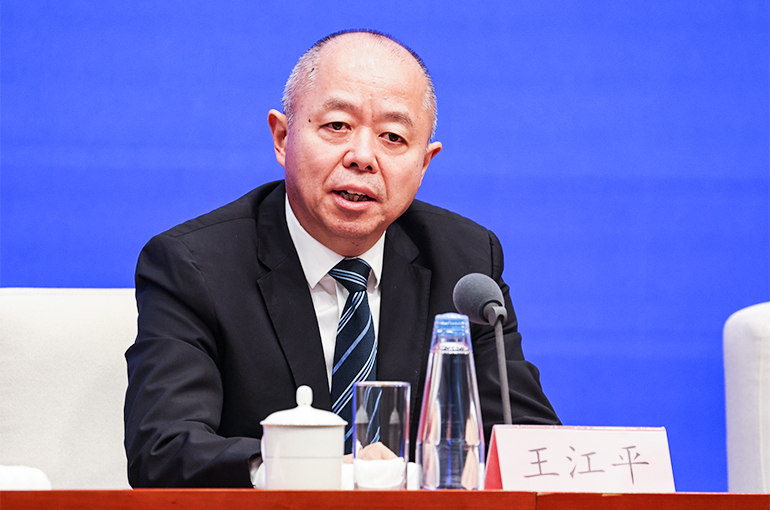 China’s Industry Ministry Takes Steps to Boost Investment, Tech Upgrades
China’s Industry Ministry Takes Steps to Boost Investment, Tech Upgrades(Yicai) Oct. 14 -- China's Ministry of Industry and Information Technology is rolling out a series of initiatives on investment and equipment upgrades this quarter in a bid to underpin consumption and expand demand. It also has plans to help unicorns, or startups valued at over USD1 billion, innovate and grow.
The MIIT will focus on the driving force of investment and promote technological transformation and the upgrading of equipment to boost consumption and increase demand, Vice Minister Wang Jiangping said at a press conference today.
The measures include the release of CNY150 billion (USD21.2 billion) worth of re-financing for technological transformation and the early launch of new technological transformation trials in manufacturing.
There are 36,000 industrial projects either under construction or expected to start construction this year, he said. This is set to infuse over CNY11 trillion (USD1.5 trillion) worth of investment in the next three years.
The MIIT will put the emphasis on consumption and will organize a series of campaigns to optimize supply and to promote the upgrading of out-dated equipment, such as trading in e-bikes and spurring sales of new energy vehicles in rural areas. It will also push for the distribution of famous Chinese products abroad and build specialty food production bases across the country.
The MIIT will nurture the low-altitude economy, which includes drones, air transport and emergency rescue services, and make it bigger. It will develop emerging areas such as humanoid robot human-computer interfaces and sixth-generation networks, and it will support smart manufacturing upgrades.
Unicorns, with their fast development and fast growth, have become a symbol of the new economy and a key force driving new-quality production, he added.
The MIIT will support unicorns' development, by setting up a national unified unicorn cultivation system and promoting unicorns' technological innovations, Wang said. It will also enhance financial backing in the form of listings, mergers, acquisitions and restructurings. And it will help them integrate into global innovation networks, he added.
The MIIT will lay the groundwork for emerging fields, such as atomic-level manufacturing, human-computer interface and 6G, Wang said.
Editor: Kim Taylor